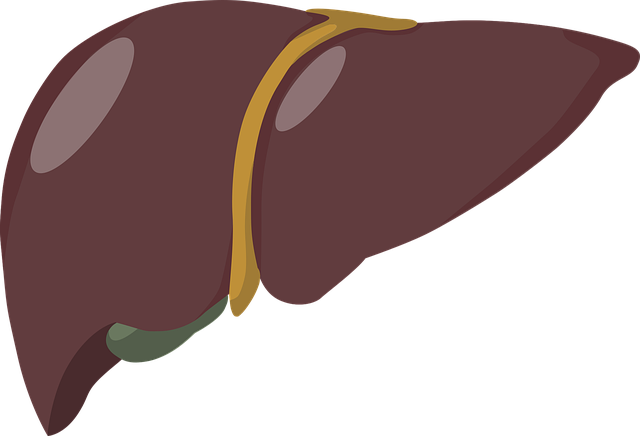
Eating Liver and Liking It?
Liver, yuck.
That’s what so many people say when they think of eating liver.
For many people, liver was a staple because it was inexpensive and readily available.
Parents and grandparents served it cooked with onions and no one liked it much.
Now, I should mention that most of the time when I mention liver in the context of this article I’m focusing on beef liver. Certainly, there are other forms of liver (pig, chicken, bison), but most people are pretty familiar with beef liver because for decades, if not centuries, it was one of the most prevalent organs meats in our diets.
But, that’s changed, and I’d argue for the worst.
Listen, I’m not going to lie to you and tell you liver is easily the most delicious cut of meat you’re going to have.
The liver is a filtering organ, it filters blood, and tons of minerals and vitamins take up residence inside the liver.
As such it can be a bit harder to eat (just based on taste), but, it’s not hard to stomach and that’s why I’m advocating for more liver in our diets.
First I’m going to show you what makes liver a true superfood and then I’m going to show you how you can incorporate it into your diet without having to die from disgust!
Why Liver is So Good For the Human Animal
You may have noticed I called us the “human animal” in the space above.
Remember, we are mammals, we are a kind of animal if we want to get down to brass tacks.
And animals thrive from what they eat.
Liver happens to be one of the organs that animals (both non-human and human alike) go ape over (pun intended).
When many of the Native American tribes that roamed the American plains would down a large bison the first thing they would go for was the liver.
When pack animals like wolves and the like kill an elk or a caribou the liver and other organs are reserved for the the alpha male.
The question you have to ask yourself is, why?
What makes the liver so special?
It’s one of the most nutrient-dense foods available, containing more nutrients per gram than many other foods.
Take a look:
A 100-gram serving of beef liver contains:
- 6.5 milligrams of iron (36% of the daily value)
- 27,000 international units of vitamin A (540% of the daily value)
- 59 micrograms of vitamin B12 (980% of the daily value)
- 0.9 milligrams of vitamin B6 (45% of the daily value)
- 259 micrograms of folate (65% of the daily value)
- 12.3 milligrams of copper (615% of the daily value)
It’s also incredibly lean and high in protein, and 100 grams will have almost 20 grams of protein, which is great.
But, as it relates to how it can benefit you, check out the following ways it can positively influence health
1- Promotes Optimal Brain Function
Beef liver is an excellent food for promoting optimal brain function due to its high nutrient content. Vitamin A and folate in beef liver are essential for the development and maintenance of the nervous system, while copper and vitamin B12 are important for cognitive function and memory.
If you want a powerful brain, liver is a good starting and ending point as far as diet is concerned.
2 - Supports a Healthy Immune System
Obviously, we all want great immune systems.
The good news is that beef liver can help support a healthy immune system.
Vitamin A, vitamin B6, and zinc in beef liver are essential for the proper functioning of the immune system, while iron is necessary for the production of red blood cells, which carry oxygen to the body's tissues. Bulking up on just a little bit of liver can help elevate immune function dramatically
3 - Helps Prevent Anemia
Beef liver is an ideal food for preventing anemia due to its high iron content. Iron is a crucial component of hemoglobin, a protein in red blood cells that carries oxygen throughout the body. A lack of iron can lead to anemia, which can cause fatigue, weakness, and other health problems.
4 - It Can Help You Detox Better:
One of the things liver does is provide you with nutritional support for detox.
As Dr. Josh Axe’s team writes:
“Your liver helps filter waste and toxins from your blood so they can be removed from your body, but it requires essential nutrients to work properly. It’s also responsible for metabolizing drugs, hormones and medications, plus helping make proteins that are needed for blood clotting.
B vitamins that are found in liver, especially folate, help with cellular functions, so they help support your body’s detoxification pathways. That being said, if you have an existing liver condition, such as nonalcoholic fatty liver disease, speak with your doctor before adding organ meats to your diet, as this may impact certain nutrient levels in your body.”
Liver will do so much more than what I listed here, and I can provide links to other articles verifying the veracity of this statement.
But let’s talk about how to make it more palatable.
Liver Does Not Have to Be Terrible
Part of the reason people don’t like liver is how it’s prepared.
You can’t fundamentally change liver, but you can change how it’s served
And best of all you don’t need to eat a half pound of it to get the benefits.
As you saw above, as little as an ounce will get you mega-doses of important nutrients.
Eating it frozen is one way to get more liver in your diet.
As you know, frozen foods don’t taste anything like their fresh counterparts and part of that has to do with how when the nutrients inside are locked up in their frozen form they don’t put off the same scent as they would when unfrozen and your sense of smell and taste are closely intertwined.
This is one of the best ways to add a good amount into your diet quickly, and also one of the better ways to start garnering a taste for liver.
Freezing it and cutting it into small bites also allows you to lightly chew it before swallowing.
Some people like to take an ounce, freeze it, then cut it into small chunks and cover it with extra virgin olive oil, salt, and maple syrup to make it go down easy.
Easier options include getting pre-packaged meats like Force of Nature ancestral blend ground beef. These pre-packaged mixes give you grass-fed beef and liver in a highly ground-up patty that makes it so when you eat the liver (in this case 1 oz contains 7% liver) you don’t even taste it.
If you want to avoid paying the high price tag from Force of Nature, you can also add it in yourself. Either blend the liver (or use a meat grinder) to mince it up and then mix it into your ground beef.
One of the best alternate options includes getting the desiccated form of liver. What this means is they freeze-dry liver and then grind it into a fine powder which is then encapsulated in a supplement for easy consumption.
Just a few capsules a day is more than enough to get you all of the high-quality and essential nutrients that this organ meat promises.
The desiccated forms are some of the most popular around because they help you avoid tasting liver at all and give it to you in a potent form.
Whichever way you decide to get liver in your diet, the fact of the matter is we all should get more liver as it’s that good for you and there’s no way around that.



